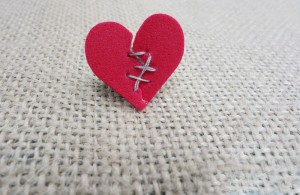“Codependency is not about a relationship with an addict, it is the absence of relationship with self.” ~ Terry Kellogg
 Codependency in relationships is a dysfunctional pattern of living and problem solving. Basically it is about unhealthy emotional dependencies.
Codependency in relationships is a dysfunctional pattern of living and problem solving. Basically it is about unhealthy emotional dependencies.
Codependency develops due to growing up in a family where there are rules that hinder development. These rules may include: its not okay to talk about problems; feelings should not be expressed, rather kept inside; communication is best if its indirect; one person acts as messenger between two others; don’t be selfish; its not okay to play or be playful; don’t rock the boat.
These kinds of rules can interfere with the free and healthy development of self-esteem and ability to cope. Consequently the child grows into an adult with non-helpful behavior characteristics, problem solving techniques and reactions to situations in life.
How do you know if you are codependent? Indicators would be that generally you’re feeling unfulfilled consistently in relationships, you tend to be indirect, don’t assert yourself when you have a need, are aware that you don’t play as much as others, or others point out you could be more playful.
Symptoms of codependency include controlling behavior, distrust, perfectionism, avoidance of feelings, intimacy problems, caretaking behavior, hypervigilant about potential threats or danger and physical illness related to stress.
The codependent very often feels others are not doing enough to meet his/her needs, becomes easily hurt by comments or behaviors of others, holds resentments, and generally has more conflicted relationships than average.
The codependent often feels the solution to his/her problems is for others to change their behaviors. However, the real solution is for the person to learn to take one hundred percent of the responsibility for his/her own thoughts and feelings.
Inner healing is required, generally through therapy. The process includes learning to see, value, acknowledge and understand oneself. It is important to learn to be conscious of what you are feeling and being open to learning what you are doing to create your own feelings, rather than being a victim and believing others are causing your feelings. It is also about learning to attend to our own wants and needs.
Copyright © Gwen Randall-Young, All Rights Reserved. Contact us if you would like permission to reprint.
CDs You May be Interested In:
When Relationships Break Down
Conflict Resolution in Relationships
Trust and Fidelity
Codependency and Projection
Relationship Healing






